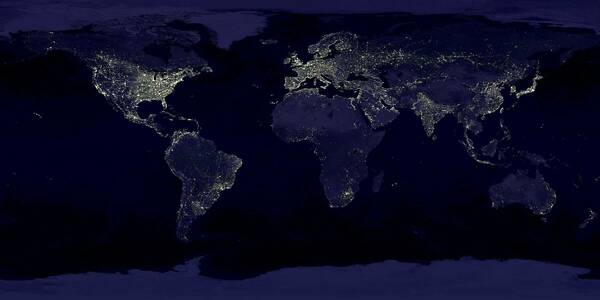
In August 2022, the Institute for Scholarship in the Liberal Arts (ISLA) invited proposals on the theme of “The Connected World.” Inspired by Notre Dame’s mission to be a powerful force for good in the world, ISLA aimed to foster deep analysis of the interconnectedness of social, cultural, political, and economic life around the globe. Over the past academic year, the Institute awarded thirteen Annual Research Theme grants to faculty and graduate students in the College of Arts and Letters. With ISLA support, scholars in Africana studies, art, art history, and design, English, history, political science, psychology, and Romance languages and literatures are studying such diverse places as Brazil, Canada, Côte d’Ivoire, Hong Kong, Ireland, Mexico, and Peru.
Two grantees in Psychology examine interconnected global dynamics shaping mental health. Prof. Gerald Haeffel will “test the generalizability of a widely used measure of cognitive risk for depression” to combat racial and geographic bias in psychological research on the topic. Graduate student Miguel Blacutt’s project examines the reasons for widely varying suicide rates in countries with similar incomes, racial demographics, and cultural values.
A few scholars will be using ISLA support to conduct research on global religious networks that connect holy sites within and beyond the Americas. Melissa Coles, a graduate student in history, “explores the relationship between religious practices, healing environments, and social conditions for human flourishing” in the nineteenth and twentieth centuries at two sites: El Santuario de Chimayo, New Mexico, and Lac Ste. Anne in Alberta, Canada. Another graduate student in history, Eduardo Dawson, examines how the Catholic Church became a site of interconnectedness and engagement for African diasporic communities in Cartagena and Lima from the late sixteenth to the early seventeenth century. Scott Barton, a faculty member in Africana studies, also studies religious practices of the African diaspora in South America in his project focused on the interplay of secular and sacred foodways in Northeastern Brazil.
Other ISLA grantees focus on geopolitical dynamics linking disparate regions in the modern world. For example, Professor Victoria Tin-bor Hui’s project highlights strategies of “narrative justice” carried out by Hong Kongers who have become political exiles around the world. A graduate student in Political Science, Rasheed Ibrahim, will survey attitudes toward global powers among youth in contemporary Côte d’Ivoire. Kevin Bustamante, another graduate student in Political Science, researches the contributions to International Relations made by Merze Tate, a pioneering scholar and the first Black woman to earn a Ph.D. from Harvard. Inha Park, a graduate student in Romance Languages and Literatures, investigates the Cold War connections between Italy and Korea apparent in a peripheral area of Milan called Corea (“Korea” in Italian).
Some ISLA grantees analyze the interconnectedness of cultures around the globe through studies of art, architecture, and literature. Elyse Speaks, faculty member in Art, Art History, and Design, is using ISLA support to complete a book project on “the theme of aesthetic connectivity through the intersection of the global and local,” including “issues of race, everyday materials, and human interconnection.” Prof. Michael Schreffler’s project studies the architecture of the Spanish World (spanning Europe, the Americas, coastal Africa, and eastern Asia) from the sixteenth through the nineteenth century, while Prof. Chanté Mouton Kinyon of the English department examines what she calls the “transatlantic gesture,” or “the symbiotic relationship between Irish and African American authors” that can be traced back to the eighteenth century. Jacob Swisher, a graduate student in history, turns to Mexico’s Upper Rio Grande Basin during the Little Ice Age of 1300 to 1850 CE, analyzing how the circulation of objects connected this region to “ecologies, communities, and cultures” around the globe.
From a wide range of disciplines, areas of focus, and methodologies, these scholars evaluate the impact and ethics of interconnection, past, present, and future. ISLA is thrilled to support these projects demonstrating the innovative research being carried out in the College of Arts and Letters!
Originally published by at isla.nd.edu on April 25, 2023.